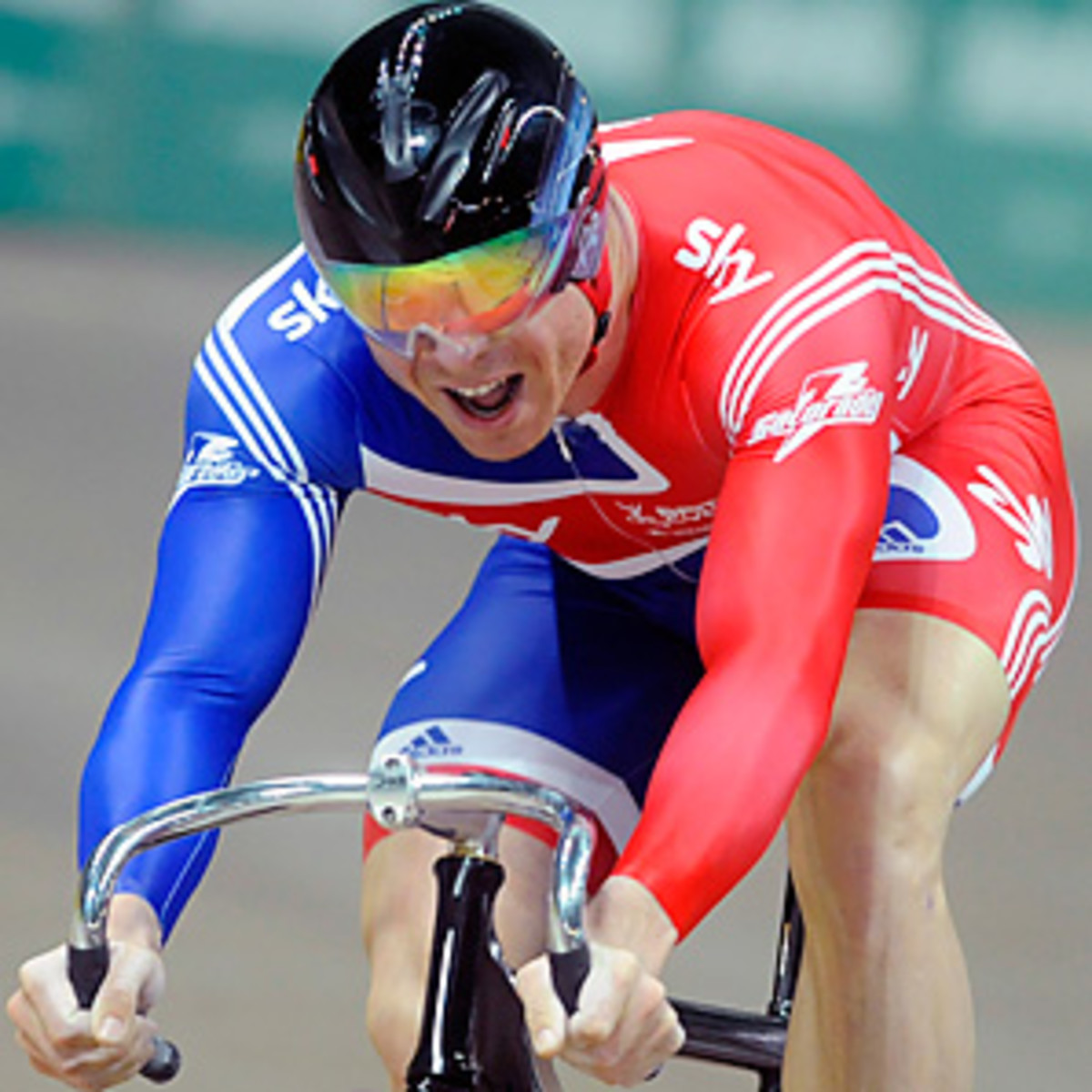One Year Out: Great Britain's hope for history rides with cyclists
Nowhere was Great Britain's success more visible during the Beijing Olympics than at the Laoshan Velodrome and the other cycling venues. British bikers won 14 medals (twice as many as any other nation) including eight golds (no other country bettered two). It was dubbed by the British press as "The Great Haul of China" and unraveled front-page spoils for a previously overlooked sport. For Chris Hoy, the rewards also included the 2008 BBC Sports Personality of the Year award, a knighthood and an ad campaign with Sean Connery.
Hoy, a gentleman Scot turned onto bikes as a child watching "E.T.," and Bradley Wiggins, a candid Londoner who celebrated his 2004 Olympic triumphs by "drinking to get drunk and ending up unconscious" are the host country's greatest cyclists. They own 11 combined medals, including seven golds. Hoy entered three events in Beijing and won them all, the first Briton to win three gold medals in a single Olympics since swimmer Henry Taylor in 1908. Wiggins defended his pursuit title from the Athens Games -- the first rider to successfully defend a pursuit title at the Olympics -- and won a gold in the team pursuit.
A few factors make it unlikely for a repeat of that dominance, but Hoy and Wiggins have realistic shots at history.
If Hoy wins a gold medal in London, he will equal the British record of five career golds held by legendary rower Steve Redgrave (the bookie favorite to light the Olympic cauldron). With a medal of any color, Wiggins will pass Redgrave as the most medaled Olympian in British history with seven.
London will be the fourth and likely final Olympics for both. Wiggins turns 32 next year. Hoy turns 36 and is "99.9 percent" sure this is his farewell.
"I've achieved everything I want to achieve in the sport, but to have the opportunity to compete in front of a home crowd and to win would be incredible," Hoy said, in an e-mail. "I know what the feeling is like to be an Olympic champion, but I've never experienced it in front of a home crowd. For me, would be the ultimate end to my career."
The Olympic cycling program has been overhauled since Beijing to even out the number of men's and women's events. Hoy's races remain -- the keirin, individual sprint and team sprint -- but Wiggins lost both his individual events and is down to just the team pursuit on the track.
However, Wiggins gained a substantial road cycling rep the last few years, highlighted by finishing fourth at the 2009 Tour de France. Wiggins said that his primary 2012 goal is to win two gold medals to match Redgrave's tally. To do that, he'll likely need to add the Olympic individual time trial on the road.
Complicating matters further is that the grueling, three-week Tour de France will end just five days before the Olympics open. The world's grandest tour is fraught with peril; Wiggins crashed, broke his collarbone and had to abandon the race this year.
"The risk of racing the Tour de France is that I could jeopardize the Olympics, but that it is a risk I am willing to take," Wiggins told The Telegraph on Tuesday.
British track cyclists will face danger from Australia, who humbled them at March's UCI Track Cycling World Championships. In a reversal from Beijing, Great Britain won a single gold medal while Australia hoarded eight. Hoy won three medals, but no gold for the first time in eight years. Wiggins missed the meet to concentrate on road racing, and it's unknown if Britain will be able to rule the Olympic velodrome again.
"The [British] team is a getting a little bit older in the tooth," said VERSUS commentator Phil Liggett, who has covered Olympic cycling since 1980 and the last 39 Tours de France. "I remain unconvinced that they haven't peaked four years too early. Only time will tell."






